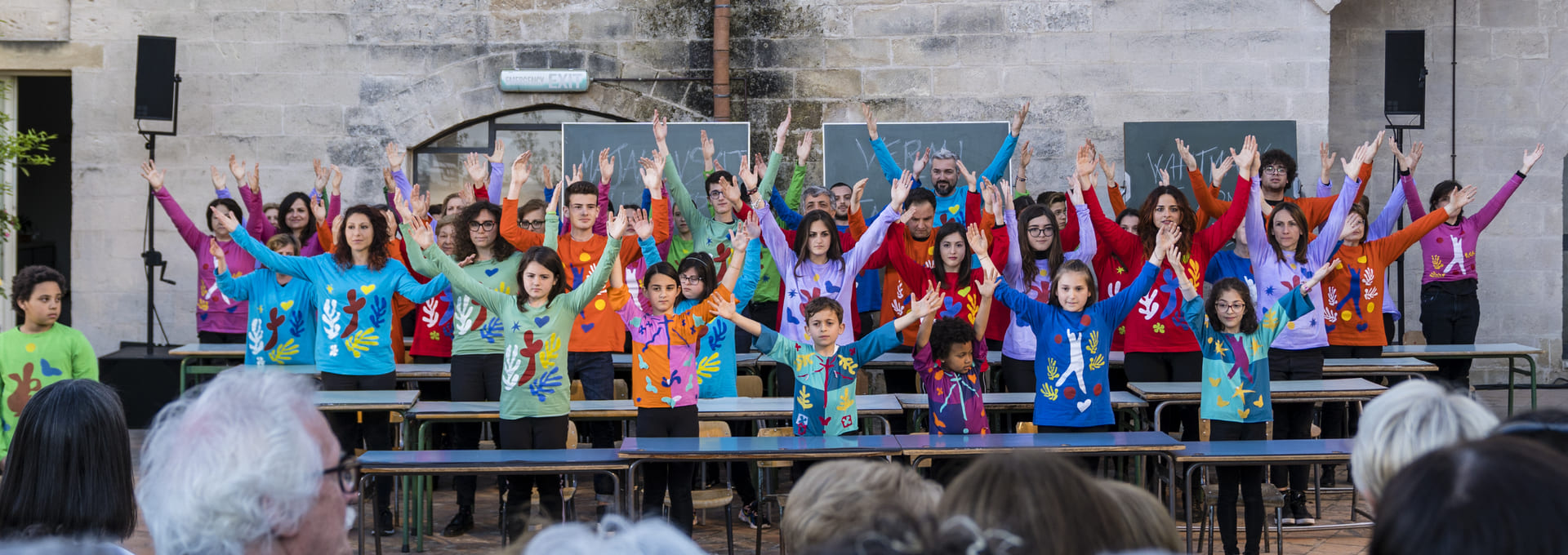
Citizens' Manifesto
During 2019, around 20,000 citizens of various origins and representatives of different abilities were actively involved in the cultural productions of Matera 2019, bringing Matera to Europe's attention as a place for co-creation through new cultural models that break down the barriers between artists and public.
This model is based on the idea, present since the candidacy dossier, of the "cultural inhabitant", for whom enjoying culture means direct involvement, relating to others, creative expression and practising a new way of learning and feeling like true citizens.
With Matera 2019, citizens have become actors in theatrical and cinematographic productions, dancers, emotion mappers, creators of operas, singers, artisans, tailors, gardeners, cooks, urban games players, community designers, volunteers, and they have even welcomed artists and hosted shows inside their homes.
Those citizens that took on a more active role in this journey met on 19 December, on the eve of the closing ceremony of Matera European Capital of Culture 2019, to present to the city a "poetic-artistic manifesto", written and agreed collectively. To guide them, two maestros who in 2019 created some of the most exciting productions for spectators and participants: the film and theatre director Giorgio Barberio Corsetti, architect of the staging in the natural theatre of the Sassi stone districts for the opera 'Cavalleria Rusticana', and for his special 'Prologue on the Sassi', part of the project 'Inhabiting the Opera'; and the choreographer Virgilio Sieni who, with the dance route 'Thauma. Atlas of Gesture', part of the I-DEA project dedicated to the enrichment of the archives and public and private collections of Basilicata, collected the ritual gestures and objects of the community to transform them into choreographic installations.
The result was a public restitution in performance mode, with a procession that started in the central and crowded Piazza Vittorio Veneto and finally arrived in Piazza San Francesco, replicating some of the dances from 'Thauma. Atlas of Gesture' and popular songs from the 'Prologue on the Sassi'. A secular procession that has become a political and democratic act to continue to make and participate in culture, even after the experience of Matera 2019 has ended. Through the Manifesto, the citizens wanted to actively imagine together new practices and paths of creation to raise community awareness of participatory art.
 Matera 2020 citizens' manifesto
Matera 2020 citizens' manifesto




